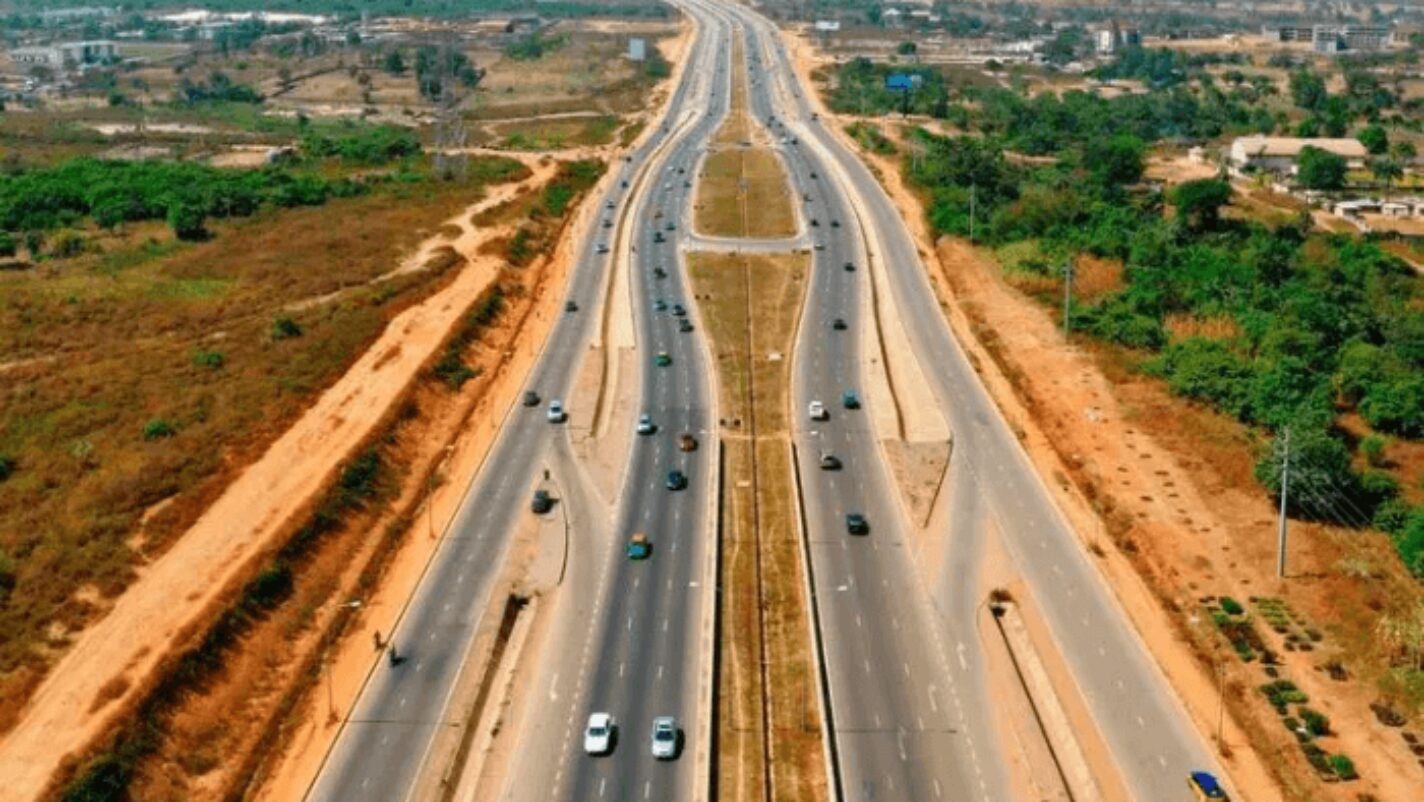Nigeria
FG Allocates N2tn to Lagos-Calabar, Other Key Projects

N2tn has been committed by the FG to the Lagos-Calabar project and additional initiatives. Learn how these projects will shape the future.
The N6.2tn budget amendment bill has been approved by the National Assembly for its third reading, and the Federal Government is allocating approximately N2tn towards various road projects including the Lagos-Calabar highway.
Olamilekan Adeola (APC, Ogun West), the Chairman of the Senate Committee on Appropriation, presented his committee’s report concerning the 2024 Appropriation (Amendment) Bill which resulted in its passage.
A bill for an Act to amend the Appropriation Act, 2024 was transmitted to the Senate by President Bola Tinubu on July 17, 2024. The amended act will cater for a sum of N6.2tn which comprises N3.2tn allocated towards capital expenditure and N3tn allotted for recurrent expenditure.
According to the document, an allocation of N700bn has been made for a planned coastal road spanning Lagos, Ogun, Ondo, Delta, Bayelsa and Port Harcourt with Akwa Ibom and Cross River states as part of its route from Lagos to Calabar.
The total cost of the railway line linking Port-Harcourt and Maiduguri is estimated at N530bn, with its route passing through Abia, Enugu, Ebonyi, Anambra, Benue Nasarawa Plateau Kaduna Bauchi Gombe Yobe and Borno.
The Badagry to Tin Can Port, Lekki Port, Ijebu Ode and Kajola would also be covered by the appropriation.
The sum of N200bn has been allocated for the African Trans-Sahara Highway, which will cross through Benue, Kogi, Nasarawa and Abuja.
In addition, the bill included a provision for allocating N349bn towards funding projects related to water management, irrigation and dam development. The Livestock Development Programme also received an allotment of N75bn.
Olamilekan announced during the bill’s presentation that it had been read twice and referred to the Committee on Appropriations for additional legislative procedures.
It should be noted that the National Assembly passed the 2024 Appropriation Bill, amounting to N28.7tn and was later approved by the President on January 1st, 2024; a fact that may be remembered by the Senate.
According to him, the 2024 Appropriation Act (Amendment) Bill aims at providing supplementary funds for various Renewed Hope Infrastructure Development Projects all over Nigeria. Additionally, it will cater to other routine expenditure needs such as enhancing minimum wage, which is a vital aspect of efficient governance across the nation.
He explained that due to the committee’s obligation to present a report on the bill back to the Senate within a week, it engaged in extensive consultations with its leadership and other significant stakeholders.
According to Olamilekan, the committee had a meeting with the Minister of Budget and Economic Planning where they discussed both the scope of the bill and its funding sources for various projects.
Afterwards, the committee followed legislative practice and procedures by working on the bill together with its House counterpart. As a result, I am now presenting this report on the Amendment Bill, 2024 which has been harmonized for the Senate’s consideration and passage.
A supplementary bill requesting an increase in the 2024 Appropriation Act from N28.7tn to N35.06tn has been passed by the House of Representatives.
President Tinubu’s N6.2tn extra-budgetary proposal was passed by the House on July 17, 2024. The bill underwent its third reading and clauses 1 to 13 were reviewed and accepted during the Committee of Supply session held on Tuesday.
The proposed budget for the fiscal year 2024, which amounts to N35.06tn has been categorized as follows: Statutory transfers will receive an allocation of N1.74tn; debt service is allocated a sum of N8.27tn while recurrent expenditure gets an allowance of N11.2tn and finally, there’s a contribution towards capital expenditure amounting to the tune ofN13,77n toward the Development Fund before December 31st ,2024 comes around .
The Chairman of the House Committee on Appropriation, Abubakar Bichi, presented the harmonized joint Senate and House report on the budget and led discussions about its general principle. He urged for approval of committee recommendations.
In a briefing with reporters just after the budget was approved, Bichi declared that “We have successfully passed Mr. President’s N6.2tn budget – a finance plan which embodies restored optimism.”
Approximately N3.2tn is allocated for capital expenditures and about N3tn will be designated towards current expenses. As previously mentioned, Mr President intends to realize the Lagos-Calabar coastal highway as it is a crucial road infrastructure project.
“He stated that the road projects of Lagos-Calabar highway span approximately 700km and cross nine states. Another critical project is Sokoto-Badagry highway, stretching over seven states at around 1,000km in length. Additionally, there is a route extending from Ebonyi to Abuja through Trans-Saharan section awaiting funding for its execution.”
Additionally, he stated that funding for strategic rail projects traversing from Abuja to Katsina, Kaduna and Kano before reaching Maradi in Niger Republic would be allocated from the budget.
The parliament vowed to be prepared and willing to collaborate with the different Ministries, Departments, and Agencies in order to guarantee complete execution of the budget.
According to him, “We got in touch with the Minister of Budget as well as the implementation agencies such as Ministry of Transport, Works and Water Resources. They assured us that once we approve this budget, it will be implemented fully.”
During our discussion with the Minister of Budget and National Planning, she verified the availability of funds and assured that the projects will initiate.
Bichi affirmed that the sum of N3tn authorized for compensating the N70,000 minimum is sufficient as they thoroughly computed and obtained data from the Accountant-General of Federation’s office before proposing this amount.
It is certain that the funds available are sufficient to cover the N70,000 minimum wage until December 31. The Nigerian populace should anticipate reaping the benefits of democracy.
